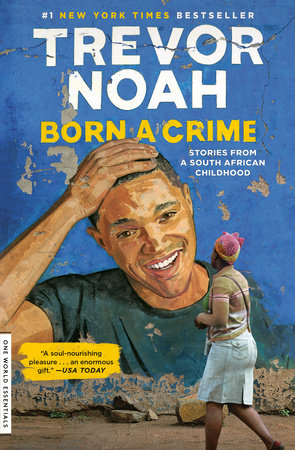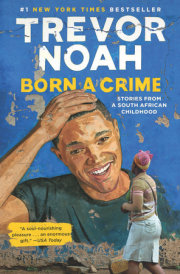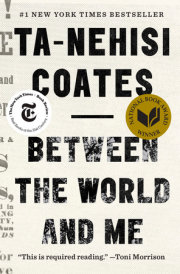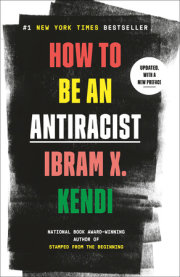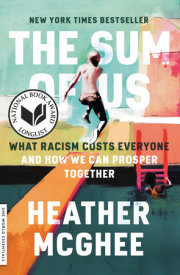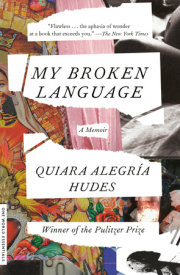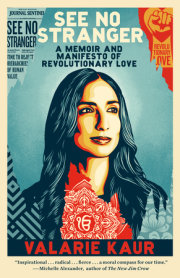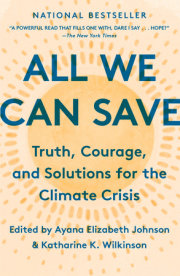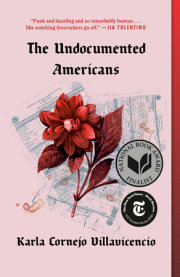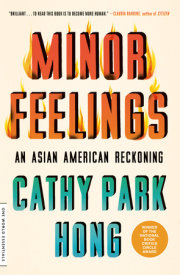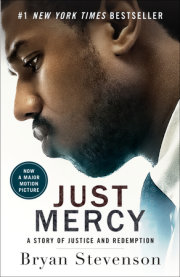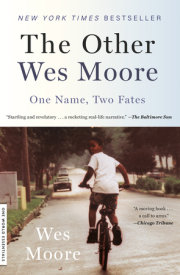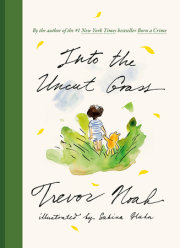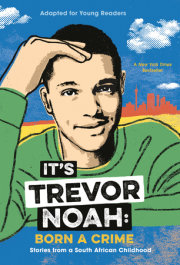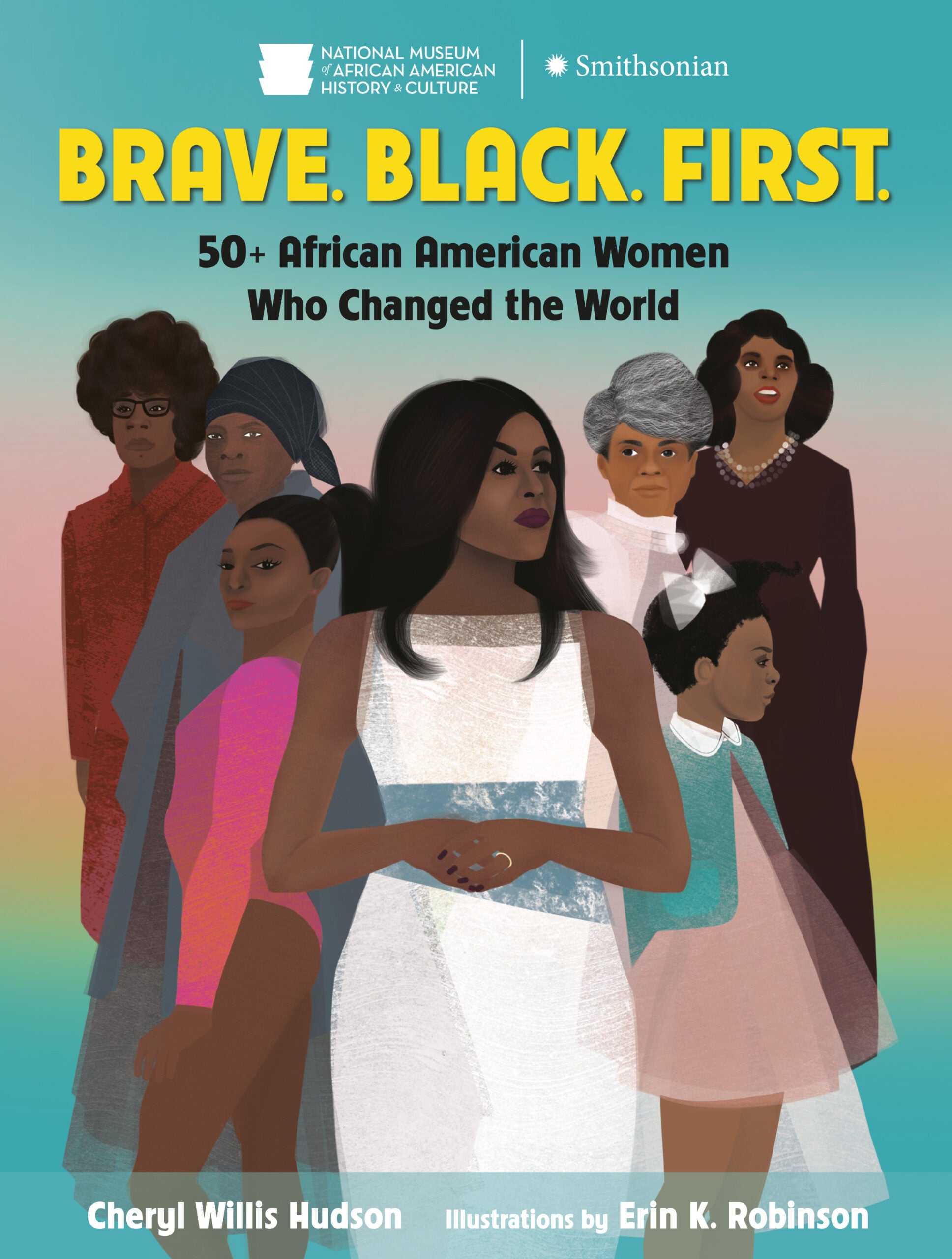1
Run
Sometimes in big Hollywood movies they’ll have these crazy chase scenes where somebody jumps or gets thrown from a moving car. The person hits the ground and rolls for a bit. Then they come to a stop and pop up and dust themselves off, like it was no big deal. Whenever I see that I think, That’s rubbish. Getting thrown out of a moving car hurts way worse than that.
I was nine years old when my mother threw me out of a moving car. It happened on a Sunday. I know it was on a Sunday because we were coming home from church, and every Sunday in my childhood meant church. We never missed church. My mother was—and still is— a deeply religious woman. Very Christian. Like indigenous peoples around the world, black South Africans adopted the religion of our colonizers. By “adopt” I mean it was forced on us. The white man was quite stern with the native. “You need to pray to Jesus,” he said. “Jesus will save you.” To which the native replied, “Well, we do need to be saved—saved from you, but that’s beside the point. So let’s give this Jesus thing a shot.”
My whole family is religious, but where my mother was Team Jesus all the way, my grandmother balanced her Christian faith with the traditional Xhosa beliefs she’d grown up with, communicating with the spirits of our ancestors. For a long time I didn’t understand why so many black people had abandoned their indigenous faith for Christianity. But the more we went to church and the longer I sat in those pews the more I learned about how Christianity works: If you’re Native American and you pray to the wolves, you’re a savage. If you’re African and you pray to your ancestors, you’re a primitive. But when white people pray to a guy who turns water into wine, well, that’s just common sense.
My childhood involved church, or some form of church, at least four nights a week. Tuesday night was the prayer meeting. Wednesday night was Bible study. Thursday night was Youth church. Friday and Saturday we had off. (Time to sin!) Then on Sunday we went to church. Three churches, to be precise. The reason we went to three churches was because my mom said each church gave her something different. The first church offered jubilant praise of the Lord. The second church offered deep analysis of the scripture, which my mom loved. The third church offered passion and catharsis; it was a place where you truly felt the presence of the Holy Spirit inside you. Completely by coincidence, as we moved back and forth among these churches, I noticed that each one had its own distinct racial makeup: Jubilant church was mixed church. Analytical church was white church. And passionate, cathartic church, that was black church.
Mixed church was Rhema Bible Church. Rhema was one of those huge, supermodern, suburban megachurches. The pastor, Ray McCauley, was an ex-bodybuilder with a big smile and the personality of a cheerleader. Pastor Ray had competed in the 1974 Mr. Universe competition. He placed third. The winner that year was Arnold Schwarzenegger. Every week, Ray would be up onstage working really hard to make Jesus cool. There was arena-style seating and a rock band jamming out with the latest Christian contemporary pop. Everyone sang along, and if you didn’t know the words that was okay because they were all right up there on the Jumbotron for you. It was Christian karaoke, basically. I always had a blast at mixed church.
White church was Rosebank Union in Sandton, a very white and wealthy part of Johannesburg. I loved white church because I didn’t actually have to go to the main service. My mom would go to that, and I would go to the youth side, to Sunday school. In Sunday school we got to read cool stories. Noah and the flood was obviously a favorite; I had a personal stake there. But I also loved the stories about Moses parting the Red Sea, David slaying Goliath, Jesus whipping the money changers in the temple.
I grew up in a home with very little exposure to popular culture. Boyz II Men were not allowed in my mother’s house. Songs about some guy grinding on a girl all night long? No, no, no. That was forbidden. I’d hear the other kids at school singing “End of the Road,” and I’d have no clue what was going on. I knew of these Boyz II Men, but I didn’t really know who they were. The only music I knew was from church: soaring, uplifting songs praising Jesus. It was the same with movies. My mom didn’t want my mind polluted by movies with sex and violence. So the Bible was my action movie. Samson was my superhero. He was my He-Man. A guy beating a thousand people to death with the jawbone of a donkey? That’s pretty badass. Eventually you get to Paul writing letters to the Ephesians and it loses the plot, but the Old Testament and the Gospels? I could quote you anything from those pages, chapter and verse. There were Bible games and quizzes every week at white church, and I kicked everyone’s ass.
Then there was black church. There was always some kind of black church service going on somewhere, and we tried them all. In the township, that typically meant an outdoor, tent-revival-style church. We usually went to my grandmother’s church, an old-school Methodist congregation, five hundred African grannies in blue-and-white blouses, clutching their Bibles and patiently burning in the hot African sun. Black church was rough, I won’t lie. No air-conditioning. No lyrics up on Jumbotrons. And it lasted forever, three or four hours at least, which confused me because white church was only like an hour—in and out, thanks for coming. But at black church I would sit there for what felt like an eternity, trying to figure out why time moved so slowly. Is it possible for time to actually stop? If so, why does it stop at black church and not at white church? I eventually decided black people needed more time with Jesus because we suffered more. “I’m here to fill up on my blessings for the week,” my mother used to say. The more time we spent at church, she reckoned, the more blessings we accrued, like a Starbucks Rewards Card.
Black church had one saving grace. If I could make it to the third or fourth hour I’d get to watch the pastor cast demons out of people. People possessed by demons would start running up and down the aisles like madmen, screaming in tongues. The ushers would tackle them, like bouncers at a club, and hold them down for the pastor. The pastor would grab their heads and violently shake them back and forth, shouting, “I cast out this spirit in the name of Jesus!” Some pastors were more violent than others, but what they all shared in common was that they wouldn’t stop until the demon was gone and the congregant had gone limp and collapsed on the stage. The person had to fall. Because if he didn’t fall that meant the demon was powerful and the pastor needed to come at him even harder. You could be a linebacker in the NFL. Didn’t matter. That pastor was taking you down. Good Lord, that was fun.
Christian karaoke, badass action stories, and violent faith healers—man, I loved church. The thing I didn’t love was the lengths we had to go to in order to get to church. It was an epic slog. We lived in Eden Park, a tiny suburb way outside Johannesburg. It took us an hour to get to white church, another forty-five minutes to get to mixed church, and another forty-five minutes to drive out to Soweto for black church. Then, if that weren’t bad enough, some Sundays we’d double back to white church for a special evening service. By the time we finally got home at night, I’d collapse into bed.
This particular Sunday, the Sunday I was hurled from a moving car, started out like any other Sunday. My mother woke me up, made me porridge for breakfast. I took my bath while she dressed my baby brother Andrew, who was nine months old. Then we went out to the driveway, but once we were finally all strapped in and ready to go, the car wouldn’t start. My mom had this ancient, broken-down, bright-tangerine Volkswagen Beetle that she picked up for next to nothing. The reason she got it for next to nothing was because it was always breaking down. To this day I hate secondhand cars. Almost everything that’s ever gone wrong in my life I can trace back to a secondhand car. Secondhand cars made me get detention for being late for school. Secondhand cars left us hitchhiking on the side of the freeway. A secondhand car was also the reason my mom got married. If it hadn’t been for the Volkswagen that didn’t work, we never would have looked for the mechanic who became the husband who became the stepfather who became the man who tortured us for years and put a bullet in the back of my mother’s head—I’ll take the new car with the warranty every time.
As much as I loved church, the idea of a nine-hour slog, from mixed church to white church to black church then doubling back to white church again, was just too much to contemplate. It was bad enough in a car, but taking public transport would be twice as long and twice as hard. When the Volkswagen refused to start, inside my head I was praying, Please say we’ll just stay home. Please say we’ll just stay home. Then I glanced over to see the determined look on my mother’s face, her jaw set, and I knew I had a long day ahead of me.
“Come,” she said. “We’re going to catch minibuses.”
My mother is as stubborn as she is religious. Once her mind’s made up, that’s it. Indeed, obstacles that would normally lead a person to change their plans, like a car breaking down, only made her more determined to forge ahead.
“It’s the Devil,” she said about the stalled car. “The Devil doesn’t want us to go to church. That’s why we’ve got to catch minibuses.”
Whenever I found myself up against my mother’s faith-based obstinacy, I would try, as respectfully as possible, to counter with an opposing point of view.
“Or,” I said, “the Lord knows that today we shouldn’t go to church, which is why he made sure the car wouldn’t start, so that we stay at home as a family and take a day of rest, because even the Lord rested.”
“Ah, that’s the Devil talking, Trevor.”
“No, because Jesus is in control, and if Jesus is in control and we pray to Jesus, he would let the car start, but he hasn’t, therefore—”
“No, Trevor! Sometimes Jesus puts obstacles in your way to see if you overcome them. Like Job. This could be a test.”
“Ah! Yes, Mom. But the test could be to see if we’re willing to accept what has happened and stay at home and praise Jesus for his wisdom.”
“No. That’s the Devil talking. Now go change your clothes.”
“But Mom!”
“Trevor! Sun’qhela!”
Sun’qhela is a phrase with many shades of meaning. It says “don’t undermine me,” “don’t underestimate me,” and “just try me.” It’s a command and a threat, all at once. It’s a common thing for Xhosa parents to say to their kids. Any time I heard it I knew it meant the conversation was over, and if I uttered another word I was in for a hiding—what we call a spanking.
At the time I attended a private Catholic school known as Maryvale College. I was the champion of the Maryvale sports day every single year, and my mother won the moms’ trophy every single year. Why? Because she was always chasing me to kick my ass, and I was always running not to get my ass kicked. Nobody ran like me and my mom. She wasn’t one of those “Come over here and get your hiding” type moms. She’d deliver it to you free of charge. She was a thrower, too. Whatever was next to her was coming at you. If it was something breakable, I had to catch it and put it down. If it broke, that would be my fault, too, and the ass-kicking would be that much worse. If she threw a vase at me, I’d have to catch it, put it down, and then run. In a split second, I’d have to think, Is it valuable? Yes. Is it breakable? Yes. Catch it, put it down, now run.
We had a very Tom and Jerry relationship, me and my mom. She was the strict disciplinarian; I was naughty as shit. She would send me out to buy groceries, and I wouldn’t come right home because I’d be using the change from the milk and bread to play arcade games at the supermarket. I loved videogames. I was a master at Street Fighter. I could go forever on a single play. I’d drop a coin in, time would fly, and the next thing I knew there’d be a woman behind me with a belt. It was a race. I’d take off out the door and through the dusty streets of Eden Park, clambering over walls, ducking through backyards. It was a normal thing in our neighborhood. Everybody knew: that Trevor child would come through like a bat out of hell, and his mom would be right there behind him. She could go at a full sprint in high heels, but if she really wanted to come after me she had this thing where she’d kick her shoes off while still going at top speed. She’d do this weird move with her ankles and the heels would go flying and she wouldn’t even miss a step. That’s when I knew, Okay, she’s in turbo mode now.
When I was little she always caught me, but as I got older I got faster, and when speed failed her she’d use her wits. If I was about to get away she’d yell, “Stop! Thief!” She’d do this to her own child. In South Africa, nobody gets involved in other people’s business—unless it’s mob justice, and then everybody wants in. So she’d yell “Thief!” knowing it would bring the whole neighborhood out against me, and then I’d have strangers trying to grab me and tackle me, and I’d have to duck and dive and dodge them as well, all the while screaming, “I’m not a thief! I’m her son!”
The last thing I wanted to do that Sunday morning was climb into some crowded minibus, but the second I heard my mom say sun’qhela I knew my fate was sealed. She gathered up Andrew and we climbed out of the Volkswagen and went out to try to catch a ride.
Copyright © 2016 by Trevor Noah. All rights reserved. No part of this excerpt may be reproduced or reprinted without permission in writing from the publisher.





